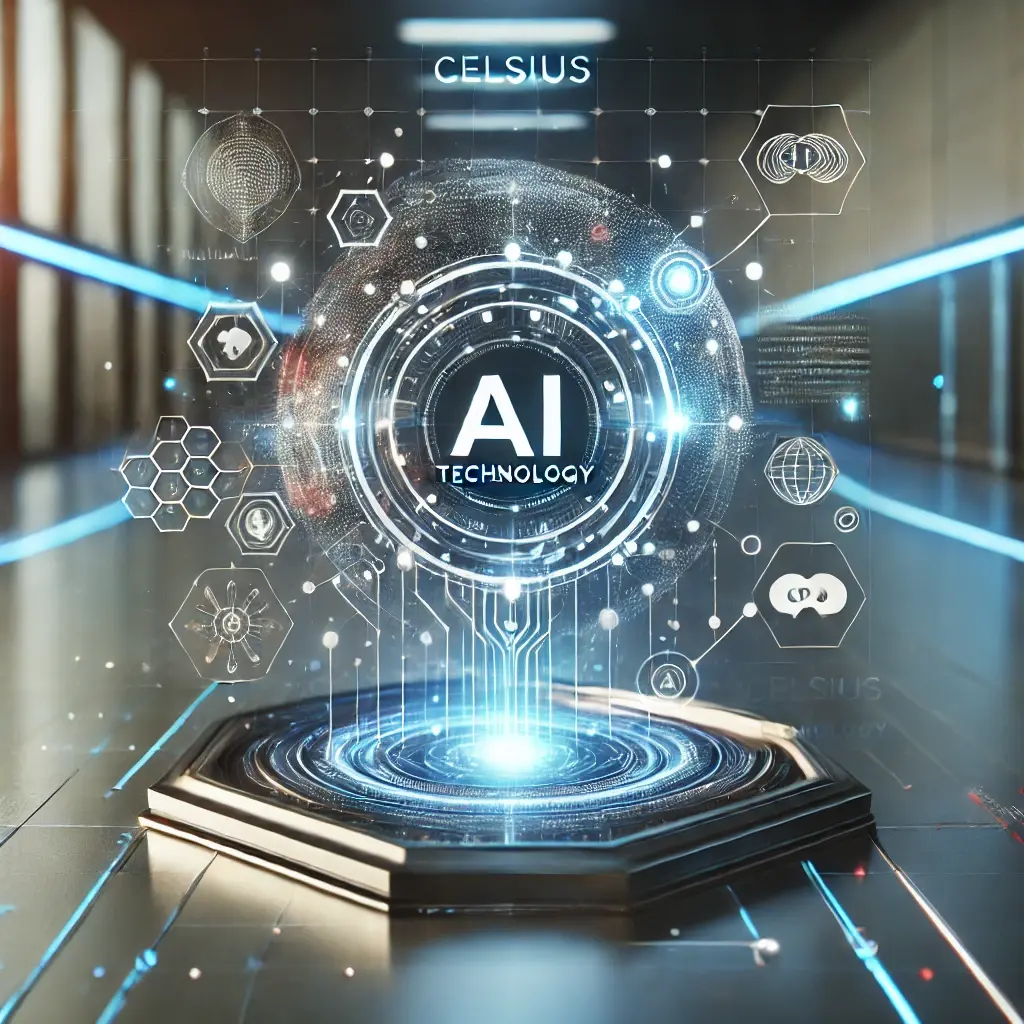Does Celsius Use AI Technology?
AI Technology ( Artificial intelligence ) has rapidly transformed numerous industries, making processes more efficient, personalized, and data-driven. As companies across various sectors embrace this cutting-edge technology, it’s no surprise that many wonder whether Celsius, a prominent player in the fitness and health beverage market, utilizes AI technology in its operations.
This article delves into the specifics of AI integration at Celsius, exploring its potential applications in product development, marketing strategies, supply chain management, and consumer engagement.
Understanding Celsius: A Brief Overview
Celsius Holdings Inc. is a globally recognized brand specializing in functional fitness beverages. The company’s mission is to provide energy drinks that support active lifestyles and improve physical performance. Its products are known for their unique formulation, which includes thermogenic ingredients that boost metabolism and help burn calories. With an emphasis on health-conscious consumers, Celsius markets itself as a better-for-you energy drink alternative free from artificial preservatives and high-fructose corn syrup.
The Role of AI technology in Modern Business
Before diving into Celsius’ potential use of AI, it’s crucial to understand how AI reshapes businesses today. AI technology can:
- Optimize Operations: By analyzing large datasets, AI can streamline processes, reduce costs, and improve efficiency.
- Enhance Marketing Strategies: AI-powered tools enable personalized marketing, predictive analytics, and better audience segmentation.
- Drive Product Innovation: AI technology assists in research and development by predicting market trends and consumer preferences.
- Improve Customer Experience: Chatbots, recommendation engines, and sentiment analysis tools enhance customer interactions and satisfaction.
- Revolutionize Supply Chains: AI improves inventory management, demand forecasting, and logistics.
Does Celsius Incorporate AI Technology?
AI in Product Development
Celsius emphasizes creating products that meet evolving consumer needs. While there’s no direct public confirmation of AI-driven research, it’s highly plausible that the company leverages AI tools to analyze market trends, consumer preferences, and emerging health science.
- Trend Analysis: AI algorithms can identify patterns in consumer behavior, such as the growing demand for natural ingredients and low-sugar options. This data can inform new product launches.
- Formulation Optimization: AI platforms specializing in food and beverage innovation, like Gastrograph AI, use machine learning to predict flavor preferences and optimize recipes.
Given Celsius’ commitment to health-conscious innovation, integrating AI into their product development process aligns with industry best practices.
AI in Marketing Strategies
Celsius relies heavily on digital marketing to connect with its fitness-focused audience. AI can significantly enhance marketing strategies by enabling:
- Personalized Campaigns: AI-powered tools like Salesforce Einstein or Adobe Sensei analyze customer data to deliver targeted ads and personalized content.
- Influencer Insights: AI platforms such as HypeAuditor assess influencer reach, engagement, and authenticity, ensuring effective partnerships.
- Real-Time Analytics: By using AI-driven analytics, Celsius can track campaign performance in real-time, allowing for immediate adjustments to maximize ROI.
Celsius’ collaborations with fitness influencers and its strong social media presence suggest that the company may already be leveraging AI tools for enhanced audience engagement.
AI in Supply Chain Management
Efficient supply chain management is vital for beverage companies to ensure product availability while minimizing waste. AI technologies offer:
- Demand Forecasting: Tools like Blue Yonder or SAP Integrated Business Planning use AI to predict consumer demand based on historical data, seasonal trends, and market dynamics.
- Inventory Optimization: AI algorithms can manage inventory levels, reducing the risk of overstocking or stockouts.
- Logistics Efficiency: AI-powered route optimization tools improve delivery times and reduce transportation costs.
Although Celsius has not explicitly stated its use of AI in supply chain operations, its global presence and rapid growth indicate that adopting AI-driven solutions would be a logical step to maintain efficiency and scalability.
AI in Consumer Engagement
Engaging with consumers in a meaningful way is critical for brand loyalty. AI can:
- Provide Chatbot Support: AI chatbots like those powered by Dialogflow or IBM Watson offer 24/7 customer service, answering queries and resolving issues.
- Monitor Social Sentiment: Tools like Brandwatch or NetBase Quid analyze social media sentiment, helping brands understand consumer opinions and address concerns promptly.
- Enable Voice Assistants: Integrating with platforms like Amazon Alexa or Google Assistant enhances brand accessibility for tech-savvy consumers.
Celsius’ focus on community building through its website and social media platforms suggests that AI tools could be integral to enhancing consumer interactions.
Real-World Examples of AI in the Beverage Industry
Celsius is not alone in potentially leveraging AI; many leading beverage brands have embraced AI technologies:
- Coca-Cola: Uses AI for product development, marketing insights, and inventory management. Their AI-powered vending machines offer personalized drink recommendations.
- PepsiCo: Implements AI for demand forecasting and flavor innovation, such as their creation of a new potato chip flavor based on AI-driven consumer preference analysis.
- Heineken: Employs AI for marketing campaigns, including analyzing social media data to craft targeted advertisements.
These examples highlight how AI can revolutionize the beverage industry, and Celsius may be following suit to stay competitive.
Challenges of AI technology Implementation
While AI offers numerous benefits, integrating it into business operations isn’t without challenges. Companies like Celsius may face:
- High Costs: Developing and deploying AI systems can be expensive.
- Data Privacy Concerns: Collecting and analyzing consumer data must comply with regulations like GDPR or CCPA.
- Skill Gaps: Implementing AI requires expertise, and companies may need to invest in training or hiring specialized personnel.
- Integration Issues: Merging AI tools with existing systems can be complex and time-consuming.
Addressing these challenges requires strategic planning and a clear understanding of AI’s role in achieving business goals.
Future Prospects for AI technology at Celsius
As AI technology advances, its applications in the beverage industry will expand. For Celsius, potential future uses include:
- Hyper-Personalization: AI could enable tailored product recommendations based on individual health goals and preferences.
- Enhanced Sustainability: AI-driven insights can optimize production processes, reducing waste and environmental impact.
- Augmented Reality (AR) Experiences: Combining AI and AR could offer interactive experiences, such as virtual fitness classes or gamified challenges linked to Celsius products.
By staying ahead of technological trends, Celsius can strengthen its position as a leader in the functional beverage market.
Conclusion
While Celsius has not explicitly disclosed the extent of its AI usage, the technology’s potential applications in product innovation, marketing, supply chain management, and consumer engagement make it a valuable asset for any forward-thinking company. As the functional beverage market becomes increasingly competitive, leveraging AI technology could be a key differentiator for Celsius, enabling it to meet consumer demands more effectively and sustainably.
Whether through advanced data analytics, personalized marketing, or efficient supply chain operations, the integration of AI technology positions Celsius for continued growth and success in the years to come.
For More Information, Checkout NetworkForbe






